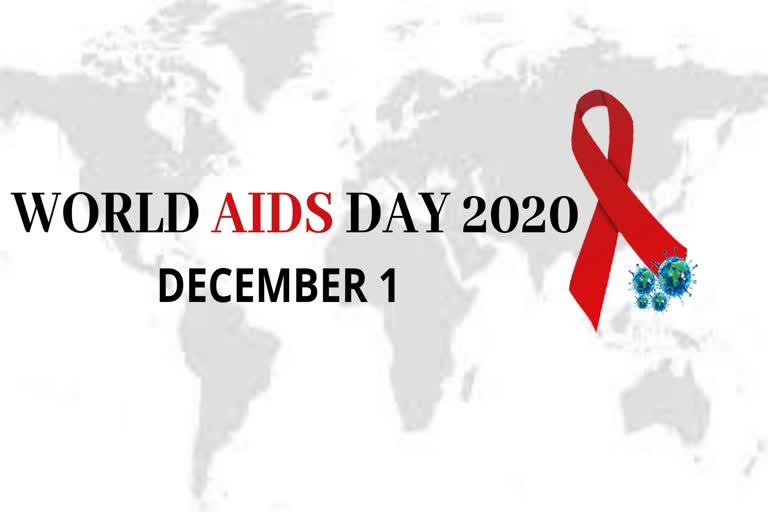Health is a human right. Health must be a top investment priority to achieve universal health coverage. On this World AIDS Day let us recognize that to overcome COVID-19 and end AIDS, the world must stand in solidarity and share responsibility." says the UN Secretary-General António Guterres. Therefore, with the theme of ‘Global solidarity, shared responsibility’, World AIDS Day will be observed on 1st December 2020, like every year, to spread awareness, show support for people living with HIV and remember people who lost their lives to AIDS or related illnesses. “Founded in 1988, World AIDS Day was the first-ever international day for global health”, states the UNAIDS Organisation.
According to the World Health Organisation (WHO), 38,000,000 estimated number of people living with HIV, 1,700,000 people were newly infected with HIV and 690,000 people died of HIV-related causes in 2019.
Understanding HIV And AIDS
You must be often confused with the usage of terms HIV and AIDS or use it as a whole. But what you may not know is there is a slight difference in both the terms. WHO explains that The human immunodeficiency virus (HIV) targets cells of the immune system, called CD4 cells, which help the body respond to infection. Within the CD4 cell the HIV replicates and in turn damages and destroys the cell Without effective treatment, using a combination of antiretroviral drugs, the immune system will become weakened to the point that it can no longer fight infection and disease.
Adding to this, an Acquired immunodeficiency syndrome (AIDS) is a term that applies to the most advanced stages of HIV infection. AIDS is defined by the development of more than 20 opportunistic cancers, infections or other severe long term clinical manifestations.
Symptoms Of HIV
While some people may not present any symptoms initially, some may experience flu-like symptoms including:
- Fever and chills
- Sore throat
- Rashes
- Swollen lymph nodes
- Headache and fatigue, etc.
The symptoms usually occur within 2-4 weeks after being infected. Consult a doctor if you notice these symptoms and think that you have been exposed to HIV. Since the symptoms are more or less common to flu, getting yourself tested for HIV is the only way to make sure. Vomiting, nausea, headache and other pains, etc. are also some of the symptoms.
Antigen/antibody tests or Nucleic acid tests (NAT) are two ways through which HIV can be diagnosed.
Stages Of HIV
There are basically 3 stages of HIV. However, early diagnosis and treatment can prevent a person from reaching the third and final stage. With the advancement in the medical field, HIV medication can prevent or slow down the progression of the disease, as a result of which, a progression of the third stage is rather uncommon in today’s scenario. Here is in brief about the 3 stages of HIV, as explained by the Centers for disease Control and Prevention (CDC):
- Stage 1: Acute HIV Infection
People have a large amount of HIV in their blood. They are very contagious. Some people have flu-like symptoms. This is the body’s natural response to infection. But some people may not feel sick right away or at all.
- Stage 2: Chronic HIV Infection
This stage is also called asymptomatic HIV infection or clinical latency. HIV is still active but reproduces at very low levels. People may not have any symptoms or get sick during this phase. Without taking HIV medicine, this period may last a decade or longer, but some may progress faster. People can transmit HIV in this phase. People who take HIV medicine as prescribed may never move into Stage 3.
- Stage 3: Acquired Immunodeficiency Syndrome (AIDS)
The most severe phase of HIV infection. People with AIDS have such badly damaged immune systems that they get an increasing number of severe illnesses, called opportunistic infections. People with AIDS can have a high viral load and be very infectious. Without treatment, people with AIDS typically survive for about three years.
Preventing HIV
As mentioned by the National Health Portal of India (NHP), here are some of the ways in which HIV can be prevented:
- Practice safe sexual behaviors such as using condoms
- Get tested and treated for sexually transmitted diseases.
- Never share needles or other injecting equipment, including syringes, spoons and swabs (injecting drug users).
- All pregnant women should be tested for HIV as a part of routine antenatal screening, and start HIV treatment immediately if found positive for HIV.
- Post-exposure prophylaxis (PEP): It is a short-term antiretroviral treatment to reduce the likelihood of HIV infection after potential exposure, either occupationally or through sexual intercourse.
- Pre-exposure prophylaxis is advised to those people who do not have HIV but are at very high risk of getting HIV to prevent HIV infection by taking medicine.


